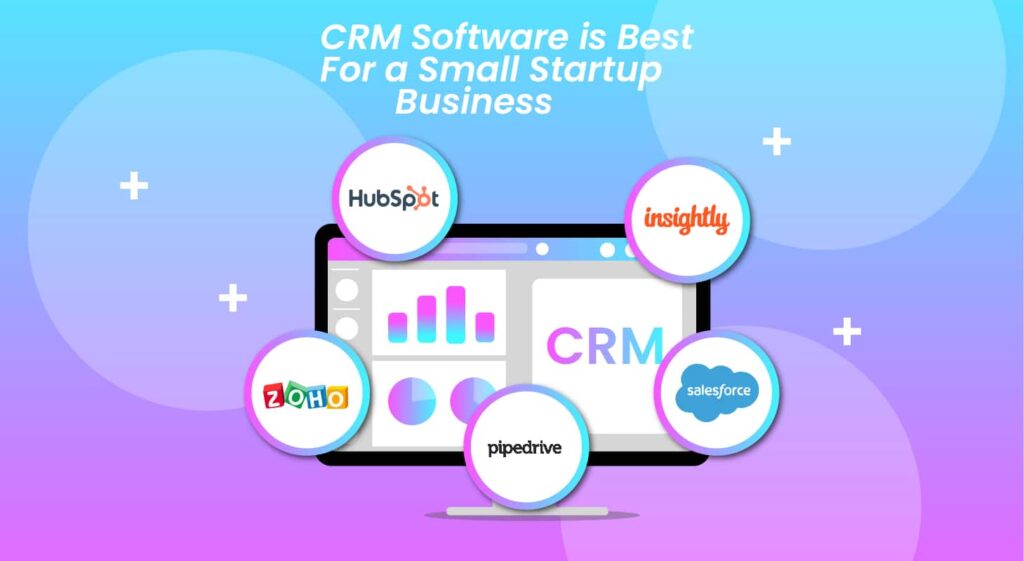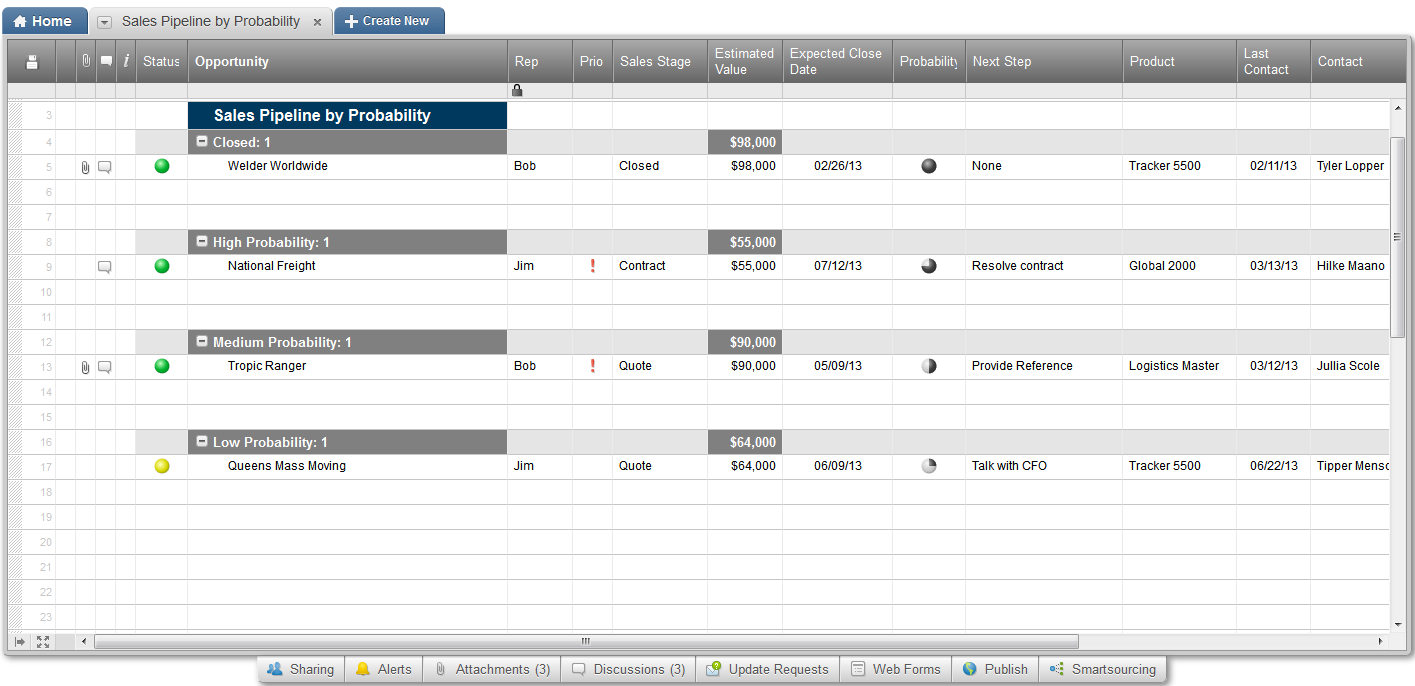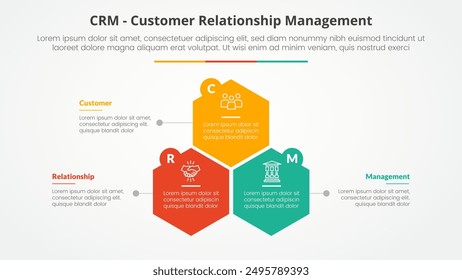Small Business CRM Basics 2025: Your Ultimate Guide to Success

Small Business CRM Basics 2025: Your Ultimate Guide to Success
Running a small business is a wild ride, isn’t it? You’re juggling a million things – from crafting your product or service to marketing, sales, customer service, and everything in between. In the whirlwind of daily operations, it’s easy for things to slip through the cracks. That’s where a Customer Relationship Management (CRM) system comes in. Think of it as your secret weapon, a digital sidekick helping you manage all those crucial customer interactions and data. But with so many options out there, figuring out the small business CRM basics can feel overwhelming. Don’t worry; we’re here to break it down for you in this comprehensive guide for 2025.
We’ll cover everything you need to know, from the core concepts to selecting the perfect CRM for your needs. By the end of this article, you’ll have a solid understanding of what a CRM is, why it’s essential for your business, and how to choose and implement the right one to boost your sales, improve customer satisfaction, and streamline your operations.
What is a CRM? The Core of Customer Relationship Management
At its heart, a Customer Relationship Management (CRM) system is a software solution designed to manage all your company’s relationships and interactions with current and potential customers. It acts as a central hub, storing all customer data, including contact information, purchase history, communication records, and any other relevant details. This centralized approach eliminates the need for scattered spreadsheets, sticky notes, and fragmented email threads. It allows you to see a complete 360-degree view of each customer.
Think of it this way: Imagine trying to bake a cake without a recipe or a measuring cup. You’d be guessing at ingredients and hoping for the best. A CRM is like the recipe and measuring cup for your customer relationships. It gives you the structure and information you need to nurture those relationships effectively.
The primary goal of a CRM is to improve business relationships. This is achieved by:
- Organizing Customer Data: Centralizing all customer information in one accessible place.
- Automating Tasks: Streamlining repetitive tasks like sending emails or scheduling appointments.
- Improving Communication: Providing a clear overview of all interactions, ensuring everyone is on the same page.
- Enhancing Sales and Marketing Efforts: Providing insights into customer behavior to tailor marketing campaigns and sales strategies.
- Boosting Customer Satisfaction: Delivering personalized service and proactive support.
Why Do Small Businesses Need a CRM? The Benefits Explained
You might be thinking, “I’m a small business; do I really need a CRM?” The short answer is: Absolutely! While it may seem like an added expense, the benefits of a CRM for small businesses far outweigh the costs. Here’s why:
1. Enhanced Customer Relationships
This is the cornerstone of any successful business. A CRM helps you build and nurture stronger customer relationships by:
- Personalization: Accessing customer data allows you to tailor your interactions, making each customer feel valued.
- Improved Communication: Track all communication history, ensuring seamless and informed conversations.
- Proactive Support: Identify potential issues and offer solutions before customers even realize there’s a problem.
2. Increased Sales and Revenue
A CRM can significantly boost your sales performance by:
- Lead Management: Track leads through the sales pipeline and identify the most promising opportunities.
- Sales Automation: Automate repetitive tasks, freeing up your sales team to focus on closing deals.
- Sales Forecasting: Gain insights into future sales trends, enabling better planning and resource allocation.
3. Improved Efficiency and Productivity
Time is money, and a CRM helps you save both by:
- Automation: Automate tasks like email marketing, appointment scheduling, and follow-up reminders.
- Centralized Data: Eliminate the need to search through multiple systems for customer information.
- Streamlined Workflows: Create efficient workflows to improve internal processes.
4. Data-Driven Decision Making
A CRM provides valuable insights into your business performance by:
- Reporting and Analytics: Generate reports on sales, marketing, and customer service performance.
- Trend Identification: Identify patterns and trends in customer behavior to make informed decisions.
- Performance Measurement: Track key performance indicators (KPIs) and measure the effectiveness of your strategies.
5. Scalability
As your business grows, your needs will change. A CRM offers scalability by:
- Adapting to Growth: Easily accommodate new customers, data, and users.
- Integrating with Other Systems: Integrate with other business tools, such as accounting software and marketing platforms.
- Customization: Customize the CRM to meet your specific business requirements.
Key Features of a Small Business CRM
Now that you understand the benefits, let’s dive into the essential features you should look for in a small business CRM:
1. Contact Management
This is the foundation of any CRM. It allows you to store and manage all your customer contact information, including:
- Contact details (name, address, phone number, email)
- Social media profiles
- Job titles and company information
- Notes and interactions
2. Sales Automation
Automate repetitive sales tasks to save time and improve efficiency, including:
- Lead scoring
- Email templates and automation
- Task reminders
- Workflow automation
3. Lead Management
Effectively manage your leads from initial contact to conversion, including:
- Lead capture
- Lead scoring
- Lead nurturing
- Sales pipeline management
4. Marketing Automation
Streamline your marketing efforts with features like:
- Email marketing campaigns
- Social media integration
- Landing page creation
- Marketing analytics
5. Reporting and Analytics
Gain valuable insights into your business performance with:
- Sales reports
- Marketing reports
- Customer service reports
- Customizable dashboards
6. Customer Service Management
Provide excellent customer service with features like:
- Ticket management
- Live chat
- Knowledge base
- Customer satisfaction surveys
7. Integrations
Ensure your CRM integrates seamlessly with other essential business tools, such as:
- Email providers (Gmail, Outlook)
- Accounting software (QuickBooks, Xero)
- Marketing automation platforms (Mailchimp, HubSpot)
- Social media platforms
8. Mobile Access
Access your CRM data on the go with mobile apps or a mobile-friendly interface.
Choosing the Right CRM for Your Small Business in 2025
Selecting the perfect CRM for your small business is a crucial decision. It’s not a one-size-fits-all solution. The best CRM for you will depend on your specific needs, budget, and goals. Here are some essential factors to consider when making your choice:
1. Identify Your Needs and Goals
Before you start evaluating CRM systems, take some time to define your needs and goals. Ask yourself these questions:
- What are your biggest pain points in managing customer relationships?
- What are your sales and marketing goals?
- What features are most important to your business?
- What is your budget?
- How many users will need access to the CRM?
Answering these questions will help you narrow down your options and choose a CRM that aligns with your objectives.
2. Consider Your Budget
CRM pricing varies widely, from free options to enterprise-level solutions. Determine how much you’re willing to spend on a CRM and consider the following:
- Subscription Costs: Most CRMs use a subscription model, with pricing based on the number of users, features, and storage.
- Implementation Costs: Some CRMs require setup fees or professional implementation services.
- Training Costs: Factor in the cost of training your team on how to use the CRM.
- Hidden Costs: Be aware of potential hidden costs, such as add-ons or additional storage.
3. Evaluate Features and Functionality
Make a list of the essential features your business needs. Then, compare the features of different CRM systems. Consider the following:
- Core Features: Does the CRM offer the core features you need, such as contact management, sales automation, and lead management?
- Industry-Specific Features: Does the CRM offer features specific to your industry?
- Customization Options: Can you customize the CRM to fit your unique business processes?
- Integration Capabilities: Does the CRM integrate with your existing business tools?
4. Assess Ease of Use
A CRM should be easy to use and intuitive. Otherwise, your team won’t adopt it, and you won’t see the benefits. Consider the following:
- User Interface: Is the interface clean, user-friendly, and easy to navigate?
- Onboarding and Training: Does the CRM offer onboarding resources and training materials?
- Mobile Accessibility: Does the CRM have a mobile app or a mobile-friendly interface?
5. Research Vendor Reputation and Support
Choose a CRM vendor with a good reputation and excellent customer support. Consider the following:
- Reviews and Testimonials: Read online reviews and testimonials from other users.
- Customer Support: Does the vendor offer responsive and helpful customer support?
- Security and Reliability: Does the vendor have a strong track record of security and reliability?
- Vendor Stability: Is the vendor financially stable and likely to be around for the long term?
6. Consider Scalability
Choose a CRM that can grow with your business. Consider the following:
- User Capacity: Can the CRM accommodate a growing number of users?
- Data Storage: Does the CRM offer sufficient data storage?
- Feature Expansion: Can you add features as your business needs evolve?
Top CRM Solutions for Small Businesses in 2025
The CRM landscape is constantly evolving, with new solutions and features emerging regularly. While the best CRM for you will depend on your specific needs, here are some of the top-rated CRM solutions for small businesses in 2025:
- HubSpot CRM: A popular choice for small businesses, HubSpot CRM offers a free version with a wide range of features, including contact management, sales automation, and marketing tools. It’s known for its user-friendliness and extensive resources.
- Zoho CRM: Zoho CRM is a versatile and affordable option with a comprehensive feature set, including sales force automation, marketing automation, and customer support tools. It offers various pricing plans to suit different business needs.
- Salesforce Sales Cloud: A leading CRM platform, Salesforce Sales Cloud offers a powerful and customizable solution for businesses of all sizes. It’s known for its extensive features, but it can be more complex and expensive than other options.
- Pipedrive: Pipedrive is a sales-focused CRM designed to help sales teams manage their pipelines and close deals. It’s known for its intuitive interface and visual pipeline management.
- Freshsales: Freshsales is a CRM from Freshworks, offering features like sales automation, lead management, and built-in phone and email. It’s known for its ease of use and affordability.
This is just a starting point. Research each CRM and compare its features, pricing, and reviews to find the best fit for your business.
Implementing Your CRM: A Step-by-Step Guide
Once you’ve chosen your CRM, the next step is implementation. This process can seem daunting, but following a structured approach will ensure a smooth transition. Here’s a step-by-step guide:
1. Plan and Prepare
Before you start implementing your CRM, take some time to plan and prepare. This includes:
- Define Your Goals: Review your CRM goals and ensure they align with your overall business objectives.
- Assess Your Data: Audit your existing data and identify any issues, such as duplicate entries or incomplete information.
- Clean Your Data: Clean and organize your data to ensure accuracy and consistency.
- Assign Roles and Responsibilities: Determine who will be responsible for each aspect of the implementation process.
2. Data Migration
Migrating your data from your existing systems to your new CRM is a critical step. Follow these best practices:
- Choose a Migration Method: Decide whether to migrate your data manually or use a data migration tool.
- Map Your Data Fields: Map the fields in your existing data to the corresponding fields in your new CRM.
- Test Your Data: Test your data migration to ensure all data is transferred accurately.
- Back Up Your Data: Always back up your data before starting the migration process.
3. Customize Your CRM
Customize your CRM to meet your specific business needs. This includes:
- Configure Settings: Configure the CRM settings, such as user roles, permissions, and notification preferences.
- Customize Fields: Customize the CRM fields to capture the data that is most important to your business.
- Create Workflows: Create automated workflows to streamline your business processes.
- Integrate with Other Tools: Integrate your CRM with other business tools, such as your email provider and accounting software.
4. Train Your Team
Provide comprehensive training to your team on how to use the CRM. This includes:
- Develop a Training Plan: Create a training plan that covers all aspects of the CRM.
- Provide Hands-on Training: Provide hands-on training to ensure your team understands how to use the CRM effectively.
- Create Training Materials: Create training materials, such as user guides and video tutorials.
- Offer Ongoing Support: Offer ongoing support to answer questions and address any issues.
5. Test and Refine
Test your CRM thoroughly before launching it to your entire team. Then, be prepared to refine your setup based on feedback:
- Test Functionality: Test all the features and functions of the CRM to ensure they are working correctly.
- Gather Feedback: Gather feedback from your team on their experience using the CRM.
- Make Adjustments: Make any necessary adjustments to the CRM based on the feedback you receive.
- Monitor Performance: Monitor the performance of the CRM and make any further adjustments as needed.
Tips for CRM Success
Implementing a CRM is a significant investment. Maximizing your return on investment requires a proactive approach. Here are some tips for CRM success:
- Get Buy-In from Your Team: Ensure your team understands the benefits of the CRM and is committed to using it.
- Use Data Consistently: Encourage your team to enter and update data consistently.
- Monitor Usage and Performance: Track CRM usage and performance to identify areas for improvement.
- Provide Ongoing Training and Support: Provide ongoing training and support to ensure your team is using the CRM effectively.
- Regularly Review and Optimize: Regularly review your CRM setup and optimize it to meet your evolving business needs.
The Future of CRM for Small Businesses
The CRM landscape is constantly evolving. In 2025 and beyond, expect to see these trends:
- Artificial Intelligence (AI): AI will play an increasingly important role in CRM, automating tasks, providing insights, and personalizing customer interactions.
- Increased Automation: Expect to see more automation features, such as automated workflows, chatbots, and personalized email marketing.
- Mobile-First Approach: CRM systems will continue to prioritize mobile accessibility, with mobile apps and mobile-friendly interfaces becoming even more sophisticated.
- Focus on Customer Experience: CRM systems will focus on providing a seamless and personalized customer experience.
- Integration with New Technologies: CRM systems will integrate with new technologies, such as virtual reality (VR) and augmented reality (AR), to enhance customer interactions.
Final Thoughts: Embracing CRM for Small Business Growth
In the competitive landscape of 2025, a CRM system is no longer a luxury; it’s a necessity for small businesses striving to thrive. By understanding the basics, choosing the right solution, and implementing it effectively, you can unlock the power of customer relationship management to drive sales, boost efficiency, and foster lasting customer relationships. It’s an investment in your future, paving the way for sustainable growth and success. Take the first step today and watch your business flourish!



